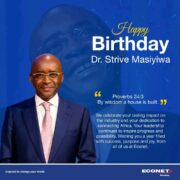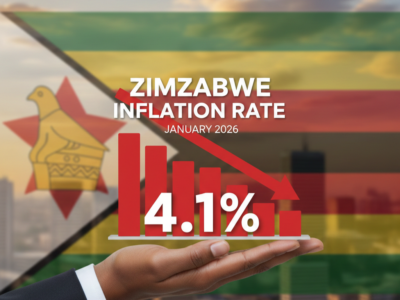Legal wrangle over terminated internet deal heads to arbitration as judge clears procedural hurdles
The High Court has ruled in favour of Powertel Communications in its long-standing dispute with Dandemutande Investments, granting the state-owned telecoms firm’s application to have an arbitrator appointed in the wake of a collapsed internet supply agreement.
This development follows years of stalled proceedings and disagreements between the two internet service providers, stemming from the termination of a capacity purchase agreement originally signed in 2010.
The fallout began in 2017 when Powertel terminated the agreement, sparking a dispute that was initially set to be resolved through arbitration. In 2018, both parties agreed to appoint retired judge Justice Vernanda Ziyambi to preside over the matter, with Dandemutande as the claimant. However, the arbitration never took off, as Dandemutande failed to file its claim.
By 2019, Justice Ziyambi communicated to both sides that due to the prolonged inactivity, she considered the case abandoned and withdrew her availability, citing other commitments. The matter remained dormant until 2023, when Powertel approached the Commercial Arbitration Centre to appoint a new arbitrator. One Whatman was selected for the role—but the appointment was swiftly challenged by Dandemutande, who accused Powertel of violating Clause 27 of their agreement by acting unilaterally.
The objection was upheld by Whatman, who issued a final award by consent, effectively ending those proceedings on procedural grounds. This prompted Powertel to take the matter to the High Court, seeking judicial intervention to appoint a neutral arbitrator, arguing that both parties had failed to agree on the appointment themselves.
In response, Dandemutande raised a preliminary legal point, arguing that Powertel’s claim had prescribed under the Prescription Act, given that more than three years had passed since the initial breakdown in agreement. The company also insisted that Powertel’s claim amounted to a debt and that the court had no business involving itself in arbitration-related matters.
However, Justice Maxwell Takuva dismissed Dandemutande’s arguments, clarifying that the court was not dealing with the merits of the dispute, but was rather being asked to intervene in the appointment of an arbitrator as provided under Article 11(4) of the Arbitration Act.
He ruled that Powertel’s approach to the court was lawful and that the mention of the Commercial Arbitration Centre was not binding, but merely a suggestion. The court retained full discretion over the final appointment, and no prejudice had been caused to Dandemutande, since Powertel did not nominate a specific individual.
Justice Takuva further noted that the arbitration clause in the parties’ agreement required a three-member tribunal—with each party appointing one arbitrator and the two appointees selecting a third, who would act as chairperson. In the event of a deadlock, the chair would be appointed by the Commercial Arbitration Centre’s chairman. However, for this structure to be activated, both parties needed to first appoint their respective arbitrators—something that had not occurred.
In conclusion, the High Court dismissed Dandemutande’s preliminary objections and granted Powertel’s application, ordering the chairman of the Commercial Arbitration Centre in Harare to appoint a qualified arbitrator to preside over the matter.
The ruling marks a significant procedural win for Powertel and clears the way for long-delayed arbitration proceedings to finally begin—potentially setting a precedent for how commercial disputes in Zimbabwe’s tech and telecoms sectors are handled when contracts break down.















Comments